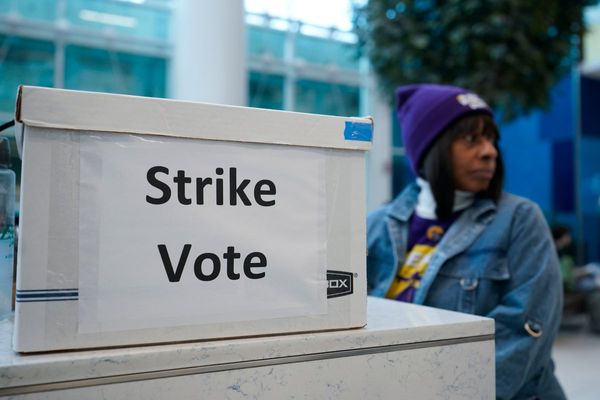Is this the return of the prodigal son?
If Elon Musk has become the world's most influential CEO -- he's undoubtedly the one most closely attached to innovative, revolutionary, atypical and anti-system -- few people realize that the billionaire was born in South Africa, in the midst of the racist apartheid system.
As his popularity grows, his millions of fans are begging him to run for president in 2024. If the richest man in the world has never commented on these posts, it's probably because he knows he is ineligible. He wasn't born in the U.S.
Musk also rarely talks about Africa. Recently, when The New York Times published a long article about his past in South Africa, it was his mother, Maye Musk, who lambasted the newspaper in a tweet.
According to the Times, Musk, 50, was brought up "in elite, segregated white communities that were littered with anti-Black government propaganda, and detached from the atrocities that white political leaders inflicted on the Black majority."
At age 17 after graduating high school, Musk left South Africa for Canada, where his mother was born.
"In South Africa, if you publicly opposed apartheid, you went to jail," Maye Musk slammed the newspaper. "In Russia, if you publicly oppose the war, you go to jail. @nytimes are you going to blame children for decisions made by governments? #StopTheWar 🇺🇦"
TheStreet has asked Musk to discuss his childhood and his ties to the African continent. The executive didn't respond to the request.
Starlink to Africa Soon
Africa has watched Tesla's success from afar, feeling like a rejected family, because so far Musk has made no effort on the continent.
But this is about to end.
Musk has just promised Africa a flagship product of his empire: Starlink, which is his venture to sell internet connections through his rocket company SpaceX.
It all started with a tweet from the tech tycoon, extolling the merits of Starlink.
"Starlink now available for RVs, campers & other large vehicle users (note, antenna too big for cars)," Musk posted on the social network on May 22.
"Any plans for Africa?" a Twitter user asked the billionaire.
"Yes, first countries in Africa to be announced coming soon," Musk responded without providing further details.
He added, however, that "Starlink will serve everywhere on Earth that we’re legally allowed to serve."
Starlink could be helpful in providing high-speed broadband internet to remote areas of Africa, where connectivity is still a major issue.
The announcement, the first for a Musk project in Africa, sparked a lot of comments on social media. Some users speculate about which African country will be first to adopt Starlink services.
"I hope Nigeria will be first in the list," one user commented.
"Do you have $100 to pay monthly bill?" one user asked.
"There are people who pay more for far shittier internet. Starlink will easily get well over 1M users if they roll out in Nigeria," another user was quick to respond.
Starlink is a satellite internet constellation operated by SpaceX.
This first consumer product from SpaceX is high-speed internet powered by a network of thousands of small low-orbit satellites.
It provides access to the internet for residents of areas that are poorly served by the fixed and mobile networks of telecom operators. The thousands of small satellites circulate in low orbit -- mainly 342 miles (550km) above Earth.
Starlink Keeps Expanding
The system also needs ground stations worldwide to communicate with the satellites. Recently, SpaceX launched a second set of about 50 Starlink satellites intended to provide internet connections to customers worldwide without going through terrestrial infrastructures.
SpaceX has already launched more than 2,400 Starlink satellites, with an overall goal of launching about 12,000.
The service is currently available in 32 countries, mainly the U.S., Canada, Mexico, Australia, New Zealand and Europe.
The past few months have been busy for Starlink.
The service became a critical communications factor in Ukraine after Russia on Feb. 24 invaded the country.
Musk, who chose Ukraine over Russia, sent Starlink terminals to enable the country to stay connected to the rest of the world after the Russian army destroyed its communications infrastructure.
Musk and his company also have supplied Starlink terminals to recently volcano-hit Tonga, in the southern Pacific Ocean, to provide internet access to isolated and remote villages.
And on May 20, Musk said that Starlink would connect 19,000 schools in rural areas in Brazil after SpaceX was cleared to operate in the country, with rights running until 2027.
"Super excited to be in Brazil for launch of Starlink for 19,000 unconnected schools in rural areas & environmental monitoring of Amazon!" Musk tweeted to his 94.8 million followers.
Musk's plan to turn SpaceX, his rocket and space tech company, into a firm capable of transporting people to the moon and Mars rests on the profitability of Starlink.
The standard antenna costs $549, plus $110 a month for the service.
The company debuted a faster Starlink Premium service in February. The hardware costs $2,500, plus $50 shipping and handling costs, with a broadband subscription fee of $500 a month.







